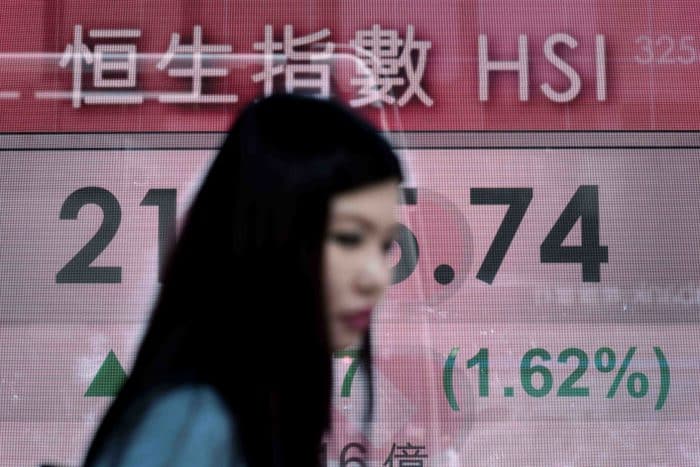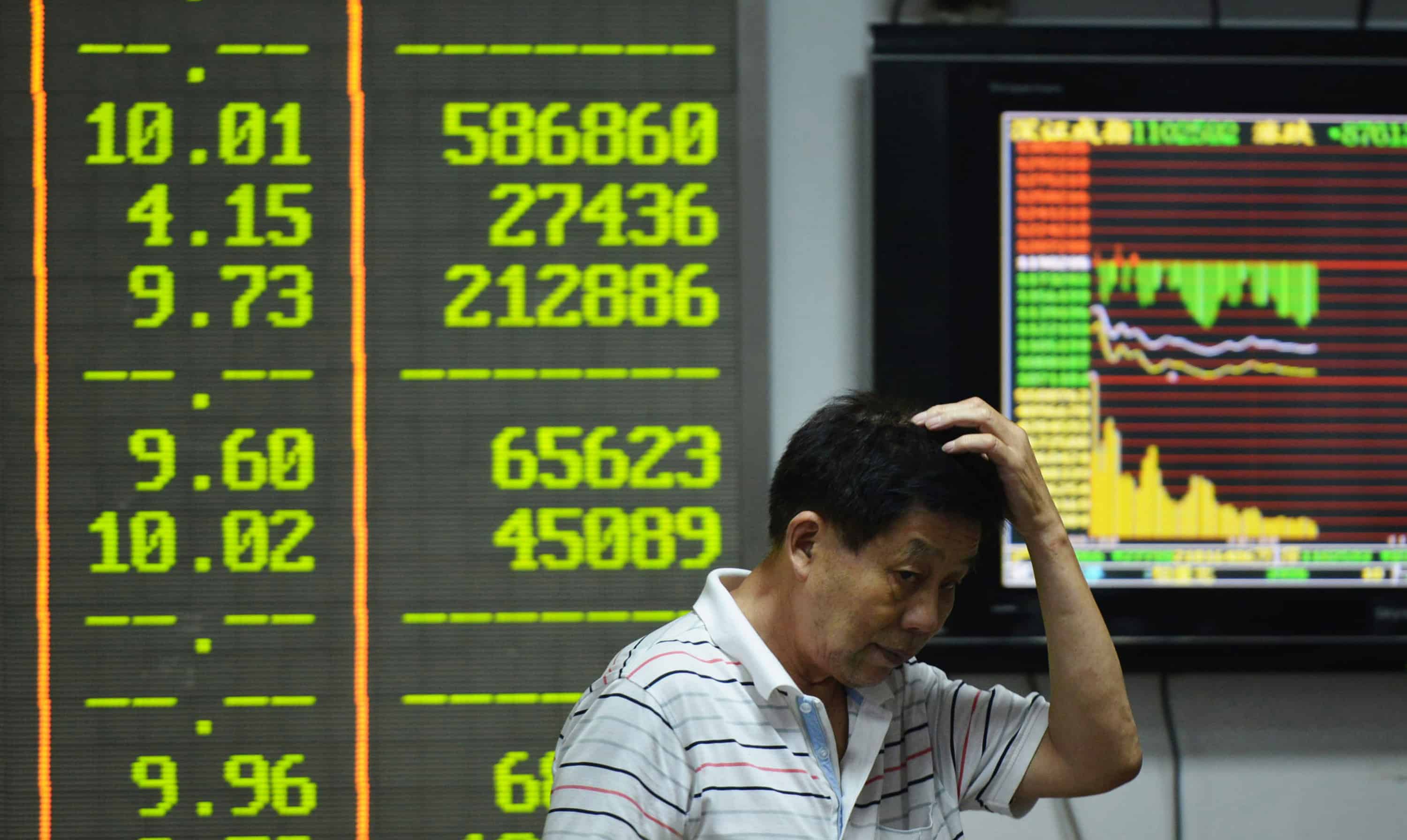LONDON – European and U.S. shares rebounded on bargain-hunting Tuesday as China cut interest rates after fears of a slowdown in the world’s second-biggest economy sparked a “Black Monday” rout across global markets.
Another slump in Chinese stocks had sparked pandemonium on the first trading day of the week, wiping about $2.7 trillion off global equities as bourses from London to Buenos Aires were snared in a precipitous plunge.
Shanghai shares dived 7.63 percent on Tuesday, extending their steepest drop in almost two decades, erasing the year’s gains and closing below the key 3,000 point mark for the first time in 2015.
But European equities — which suffered their worst slump Monday since the 2008 financial crisis — surged as the Chinese central bank moved to slash interest rates for the fifth time in nine months.
Frankfurt and Paris closed up more than 4.0 percent, while London gained 3.09 percent.
Wall Street shares also jumped rallying after a five-day streak of losses left U.S. indices in correction territory.
Around midday in New York, the Dow Jones Industrial Average was up 2.38 percent, the broad-based S&P 500 gained 2.48 percent, and the tech-rich Nasdaq Composite Index rose 3.29 percent.
“I’m not surprised to see the market move up, given the magnitude of the sell-off we’ve seen the past four days and the moves made by China after the market close in terms of cutting rates,” Michael James, managing director of equity trading at Wedbush Securities Inc. in Los Angeles, told Bloomberg News. “The question is whether these levels will hold, and the only guarantee is another day of volatility.”
On Tuesday, the dollar also gained against other currencies and oil prices rose.

Fragile economies
But slowing growth in China has long kept investors on edge and the shock devaluation of the yuan two weeks ago, following a string of weak economic data, spooked the markets.
“Monday’s sell-off may have been overdone but the underlying fears remain. The Chinese economy is slowing and the more we see its markets collapse, the more concerned investors are going to become,” said Craig Erlam at trading firm Oanda.
“We have seen before that these large crashes can either spark or act as a warning of a global recession and given how fragile many economies still are, it would be naive to think the same couldn’t happen again.”
Chinese Premier Li Keqiang insisted Tuesday there was no basis for the yuan currency to weaken further and said the exchange rate would be maintained at a “basically stable” level, state media reported.
China is the world’s top trading nation and a key driver of global growth, so signs its economy is faltering — particularly when the U.S. Federal Reserve is expected to raise interest rates for the first time in almost a decade — have fueled world recession fears.
Tokyo ended a see-saw session down nearly 4.0 percent, in its sixth straight day of losses, but Hong Kong, Sydney and Seoul eked out gains.
‘Opposite day’
“Today is opposite day for the most part,” said Patrick O’Hare, analyst at Briefing.com of the markets rallies in Europe and on Wall Street.
The People’s Bank of China boosted market sentiment in the West Tuesday by reducing lending and deposit interest rates by 0.25 percentage points each and its reserve requirement ratio by 0.50 percentage points.
The moves take effect Wednesday, and follow similar tandem cuts in late June.
The central bank has now cut benchmark interest rates five times since November as authorities try to head off a too sharp deceleration in economic growth.
European leaders meanwhile differed on China’s ability to manage the crisis and its impact on the global economy.
French President Francois Hollande said he trusted that “Chinese authorities will overcome this stock market crisis.”
But British finance minister George Osborne warned that the global economy could not be immune to China’s woes.
“These dramatic movements in recent days are telling us there are still lots of risks out there in the global economy and there are particular concerns about what’s going on in China. … It means we’re not immune to what goes on in the world,” he said.
In London foreign exchange deals, the dollar traded at 119.65 yen, up from a seven-month low of 116.18 yen struck in New York on Monday, but weaker than the 122.06 yen seen in U.S. trading on Friday.
The yen has strengthened this month as investors tend to buy the unit in times of uncertainty.
The euro weakened against the dollar at 1.1411 compared with $1.1606 late on Monday, and was essentially unchanged at 137.17 yen compared with 137.55 the previous day.
Commodity prices recovered, although oil remained under pressure as dealers expect a global supply glut to continue for the coming years.
U.S. benchmark West Texas Intermediate (WTI) for October delivery rose $1.13 to $39.37 a barrel while Brent North Sea climbed $1.32 in London to $44.01.






